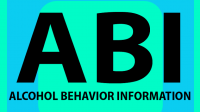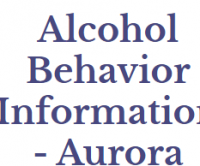About Life Continues Recovery of Colorado in Colorado
Life Continues Recovery of Colorado, located in Denver, CO, stands out as a peer support and coaching service focusing on mental health and substance abuse treatment. This facility is unique in its approach, specializing in aiding clients through all stages of change and offering a blend of in-person and remote support services to ensure comprehensive care.
- Peer Support Specialist Services: Life Continues Recovery offers personalized encouragement and guidance, helping clients navigate their recovery journey.
- Technology-Driven Support: Utilizes an app to provide clients with an interactive, customized care plan and access to resources, enhancing the recovery process.
- Flexible Care Levels: Supports transitions to and from various levels of care, adapting to the client's evolving needs.
Life Continues Recovery of Colorado is accredited by the Joint Commission Accreditation (JCAHO), the National Association of Addiction Treatment Providers (NAATP), and holds a state license, ensuring high-quality care. The facility's commitment to individualized treatment plans and the integration of technology sets it apart in the field of addiction recovery.
The center treats a range of addictions, including drug and opioid addiction, and addresses dual-diagnosis cases. Treatment methods encompass cognitive behavioral therapy, trauma therapy, and more, across different levels of care from detox to aftercare support.
Genders
Ages
Modality
Additional
Accreditations
State License
NAATP

JCAHO
Conditions and Issues Treated
Opioid addiction is a common form of addiction, often caused by prescription drugs that are abused. Addiction is treated by detoxifying the body and following up with therapies to correct behavior and target the root of the problem.
Most opioid addiction begins with patients being prescribed painkillers after an injury or surgery. The body becomes used to the chemicals in these medications and soon no longer responds to their presence. As a result, addicts seek out stronger opiate-based medications like Oxycodone to compensate for the lack of effectiveness.
The most dangerous aspect is that these addictive behaviors often get carried over onto illicit drugs like heroin, which are increasingly potent and result in lower life expectancies.
Dual Diagnosis treatment centers like Life Continues Recovery of Colorado provide this treatment tailored to the patient’s specific needs, and they also have a specialized focus on addiction treatment. Drug and alcohol addiction often coexists with another mental illness, such as depression or schizophrenia. In other words, drug addiction is only a symptom of a deeper problem.
When addiction enters into the picture, it can often lead to dangerous consequences in the addict’s life. For example, when addiction is paired with major depression, it can lead to suicidal thoughts or actions. When someone is addicted to drugs or alcohol, they often experience a failure to control their impulses and difficulty decision-making.
Dual diagnosis for drug addicts can be very effective when treating drug addiction in Denver, CO.
Levels of Care Offered
This center offers a variety of custom treatment tailored to individual recovery. Currently available are Aftercare Support, Detox, Dual-Diagnosis, Outpatient, Partial-Hospitalization, with additional therapies available as listed below.
Detox is the body’s process of removing toxins. In substance abuse, detox refers to the process of getting rid of drugs already present in the system once the patient stops further intake. Detox is the initial recovery step. Physiological drug dependence over time can lead to symptoms of withdrawal. Depending on the symptom severity, the detox process is managed either medically or clinically. While medically assisted detox relies on specific medicines, clinical or social detox relies on providing the patient with emotional and psychological support.
Outpatient treatment programs are less intensive than an inpatient program. Participants live at home while working or going to school. Benefits include being able to continue relationships with family, friends, and work/studies. Treatment includes educating patient on addiction to drugs, medication, and counseling. Benefits include being able to continue relationships with family, friends, and work/studies. Treatment includes educating patient on addiction to drugs, medication, and counseling. Counseling sessions are for either individual or group.
A Partial Hospitalization Program is the safest way for a person suffering from addiction to get treatment without putting their family at risk. The addict has the freedom to check in and out of treatment, yet they still receive outside guidance and confinement if needed to beat their addiction.
An addict in a Partial Hospitalization Program will meet with medical and psychological professionals and undergo drug testing, all of which can lead to a diagnosis and the beginning of an effective treatment plan. Treatment can include individual counseling, group therapy, family therapy, community support sessions, and more.
Aftercare Support in drug rehab is crucial because it helps people stay sober after treatment. The benefits of Aftercare Support are that it provides a pathway that will help people get sober for life. It supports healing at all levels, physical, mental, emotional, and spiritual.
Therapies & Programs
Individualized Treatment is essential because it gives addicts the ability to participate in a program that meets their unique needs. An addict should work with professionals who understand what they’re going through, especially if the addict is actively using.
Trying to find a treatment program that meets your needs can be challenging. It’s even more complicated if you don’t know what kind of treatment you need. Being able to have professionals who are experienced with treating your situation is key to getting sober. Finding the right treatment program for an addict is difficult, but it’s even harder without communicating with those who have experience treating your specific situation.
A person looking for drug recovery should know that group therapy is an essential tool. Group therapy provides accountability and friendship to people with addiction. It is recommended as a lifetime treatment habit. Group therapy occurs in a group setting as opposed to a one-on-one setting. It benefits patients by providing a feeling of support and letting them know they are not alone. Patients at Life Continues Recovery of Colorado also learn to build trust and understanding and gain perspective through discussions.
Dialectical behavior therapy is a type of cognitive-behavioral therapy that focuses on eliminating specific negative thoughts that can potentially lead to an individual inflicting self-harm. It helps treat patients exhibiting uncontrollable emotions, intense mood swings, and borderline personality disorders.
The term “dialectic” means the integration of opposites. In the substance abuse context, dialectical behavior therapy refers to accepting the patient’s addiction and changing their thoughts and behavior. It improves life skills such as controlling intense emotions without reacting impulsively, resolving interpersonal conflicts effectively, and promoting awareness about self and others.
Eye Movement Desensitization and Reprocessing (EMDR) is an integrative psychotherapy approach that has been extensively studied and proven effective for treating trauma. EMDR is a set of standardized protocols that incorporates elements from many different treatment approaches. EMDR therapy promotes information processing of external stimuli, memories, thoughts, and feelings. EMDR sessions typically last 50-90 minutes and can be completed in as little as 12-15 sessions. However, many individuals with chronic trauma histories require more than 50 EMDR sessions to achieve significant symptom relief.
EMDR therapy treats individuals, children, and adults of either gender exposed to one or more traumatic events. EMDR cannot cause someone to forget details of the traumatic event(s), nor does EMDR focus on exploring the past trauma(s). EMDR has been demonstrated effective for survivors of various traumas, including accidents, natural disasters, violent crimes, sexual abuse, and combat stress.
EMDR is most effective when the client has completed a thorough psychiatric evaluation to rule out or treat any co-existing mental health problems. EMDR therapy does not involve hypnosis or abreaction (catharsis) of traumatic memories. EMDR is a goal-directed therapy in which the client works with the therapist to develop an individualized treatment plan that focuses on specific trauma memories and associated disturbance.
Thinking about nutrition is an odd thing when you’re strung out. You are probably so low physically that all you want to do is sleep, eat comfort food and get high again. It’s hard to imagine having enough energy to care about what kind of food you are eating but think about it. Your body has gone through some severe physical stress, so it is vital to give it the building blocks it needs to recover. It’s equally important to remember that malnutrition can affect your mood and energy level, which affects your desire to get sober.
If you’re eating right, you’ll have more energy for productive activities, such as going to meetings or being with other sober people in Denver, Colorado. You’ll have more strength to fight cravings, and you won’t be so low that they are overwhelming. You will think clearly enough to make sober decisions. Finally, good nutrition helps keep your body strong against the familiar ravages of drug use–tuberculosis, hepatitis, abscesses, infections, etc.—as well as the physical symptoms of withdrawal.Nicotine replacement therapy can help addicts reduce or eliminate their cravings for nicotine. By replacing the harmful substances in tobacco with less potent chemicals, most smokers can gradually wean themselves off cigarettes without experiencing intense cravings.
During these sessions, a therapist will work with the addict to gradually reduce their dependence on nicotine by controlling how much they smoke and providing appropriate breaks between cigarettes. Using this type of therapy in combination with other strategies can help smokers learn how to quit smoking for good and avoid relapse.
Patient Experience
Experiential Therapy at Life Continues Recovery of Colorado
Experiential therapy is a type of therapy that has been found to be effective in the treatment of substance abuse. It is a “hands-on” approach, which can involve anything from acting to rock climbing. The individual must trust the therapist for this therapy to work. This therapy helps individuals revisit and heal from past traumas and has been used in various behavioral and eating disorders.
Fitness Therapy
Exercise releases feel-good chemicals and can improve self-esteem. Physical fitness can also help increase abstinence rates, ease withdrawal symptoms, and improve depressive symptoms. Fitness therapy is part of the holistic approach and comprehensive care provided in substance abuse treatment. It does not involve the vigorous exercise regimes used in fitness programs.
A fitness therapy program at Life Continues Recovery of Colorado achieves improved attention, cognitive functions, and memory power. Additionally, endorphins released during exercise reduces anxiety and stress levels and enhance calmness. Fitness therapy complements other therapies used in a residential or outpatient treatment program.
Payment Options Accepted
For specific insurance or payment methods please contact us.
Is your insurance accepted?
Ask an expert, call (888) 674-0062
Additional Details
Specifics, location, and helpful extra information.
Denver, Colorado 80231 Phone Number(844) 950-5433 Meta DetailsUpdated April 15, 2024
Staff Verified
Life Continues Recovery of Colorado Patient Reviews
There are no reviews yet. Be the first one to write one.
Denver, Colorado Addiction Information
The Centennial State has slipped to a ranking of 12th in the country for drug abuse. Each year around 24% of the state's population uses illegal drugs while nearly 5% of its population abuses alcohol. Substance-related deaths in Colorado were responsible for 15.12% between 2008 and 2017. Fortunately, Colorado drug and alcohol addiction treatment are available to help a person overcome addiction.
Drug addiction in Denver, Colorado, is quite serious. In 2012, there were 974 drug overdose fatalities in the area, which has likely only gone up in recent years. The city has an estimated 34,000 marijuana users reporting past-month usage in 2016. The most common drugs abused are methamphetamine, heroin, and marijuana. Some popular treatment options include inpatient rehab, outpatient rehab, and detoxification programs.
Treatment in Nearby Cities
- Akron, CO (94.8 mi.)
- Berthoud, CO (46.6 mi.)
- Pueblo, CO (97.9 mi.)
- La Junta, CO (135.9 mi.)
- Norwood, CO (212.0 mi.)
Centers near Life Continues Recovery of Colorado
The facility name, logo and brand are the property and registered trademarks of Life Continues Recovery of Colorado, and are being used for identification and informational purposes only. Use of these names, logos and brands shall not imply endorsement. RehabNow.org is not affiliated with or sponsored by Life Continues Recovery of Colorado.








